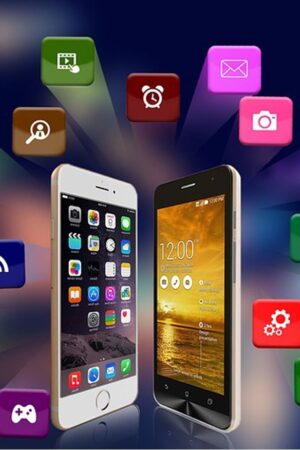Introduction: The Ubiquity of Applications in the Digital Era
In today’s hyperconnected world, the term application transcends its basic meaning. No longer limited to a software tool downloaded on a smartphone, an application—commonly referred to as an “app”—now represents a transformative force reshaping industries, lifestyles, and communication patterns across the globe. From personal convenience to professional productivity, applications have become the interface through which humans interact with technology in almost every sphere.
The Evolution of Applications: From Desktop Programs to Cloud-Based Marvels
The concept of applications has evolved significantly since the dawn of computing. Initially, software applications were cumbersome desktop-bound tools designed for specific, often narrow, purposes. Think Microsoft Word in the 1990s or early spreadsheet programs like Lotus 1-2-3. These were static, heavy, and far from user-friendly by today’s standards.
With the rise of the internet and mobile technology, however, the application landscape exploded. What once required entire desktop installations can now be accessed with a single tap on a touchscreen. Today’s applications are lean, cloud-based, and often driven by artificial intelligence. Whether it’s a mobile banking app, a cloud-based project management tool, or a health tracker, applications have become essential, intuitive extensions of ourselves.
Classifying Applications: A Glimpse into Categories and Functions
Applications come in an extraordinary array of types, each catering to different needs. Broadly, they can be grouped into the following categories:
-
Productivity Apps: These include tools like Microsoft Office, Google Workspace, and Notion. They facilitate tasks like writing, scheduling, data management, and team collaboration.
-
Social and Communication Apps: Platforms such as WhatsApp, Instagram, and LinkedIn fall into this category. They enable both personal and professional communication and have redefined how humans connect and express themselves.
-
Entertainment Apps: Netflix, Spotify, and TikTok are among the most popular, offering endless streams of content to consume, engage with, and share.
-
E-commerce and Retail Apps: Amazon, Flipkart, and Shopify enable seamless shopping experiences from anywhere in the world.
-
Utility and System Apps: These range from weather trackers and navigation tools to antivirus software and system optimizers.
-
Educational Apps: With platforms like Duolingo, Khan Academy, and Coursera, learning has never been more accessible.
-
Health and Wellness Apps: Applications such as MyFitnessPal and Headspace contribute to physical health and mental well-being, often integrating with wearable devices for real-time tracking.
The Role of Applications in Business and Industry
Applications are not just consumer-facing tools; they have become integral to modern business operations. Enterprises use custom-built apps for everything from inventory management to customer relationship tracking. Business intelligence platforms allow for data visualization and strategic decision-making at unprecedented speeds.
In sectors like healthcare, apps are revolutionizing patient care. Telemedicine apps allow doctors to consult patients remotely. In logistics, tracking and routing applications optimize delivery chains, reducing costs and environmental impact. Financial firms rely heavily on trading and investment applications, automating vast amounts of data analysis.
Designing for the User: Why UX and UI Matter
Behind every successful application lies a thoughtful design focused on the user experience (UX) and user interface (UI). A cluttered or unintuitive interface can deter users regardless of how powerful the app’s backend might be. Designers today must consider not just functionality, but emotional design—how users feel when using an app.
Key design principles that contribute to app success include:
-
Simplicity: Clear, concise navigation with minimal steps to complete tasks.
-
Consistency: Uniform design elements throughout the application.
-
Responsiveness: Fast-loading interfaces with smooth transitions.
-
Accessibility: Inclusivity for users of all abilities, including those who rely on screen readers or voice controls.
Challenges and Ethical Considerations
Despite their utility, applications raise significant ethical and technical questions. Privacy is a major concern. Many apps require access to personal data such as location, contacts, and browsing history. Without proper safeguards, this data can be misused or exposed through breaches.
There’s also the issue of digital addiction. Some apps are deliberately engineered to exploit human psychology, encouraging prolonged use through mechanisms like infinite scroll and dopamine-triggering notifications. This raises questions about social responsibility in app development.
Additionally, the digital divide means that access to beneficial applications is not universal. In many parts of the world, poor infrastructure and limited connectivity hinder app usability, exacerbating inequality.
The Future of Applications: AI, AR, and Beyond
As technology continues to evolve, the future of applications promises even greater integration with emerging technologies:
-
Artificial Intelligence will enable smarter, more adaptive applications that learn from user behavior to deliver personalized experiences.
-
Augmented Reality (AR) and Virtual Reality (VR) will redefine interaction, allowing users to overlay digital content on the real world or immerse themselves entirely in virtual environments.
-
Voice-Activated Apps such as those powered by Alexa, Siri, and Google Assistant are moving toward becoming context-aware and proactive rather than reactive.
-
Decentralized Applications (dApps) using blockchain technology will offer more secure, transparent alternatives to traditional platforms, particularly in finance and contract management.
Conclusion: More Than Just Tools—Applications as Agents of Change
Applications are more than software; they are catalysts of transformation. They shape how we communicate, learn, work, heal, shop, and play. As the world grows increasingly digital, applications will become ever more ingrained in the human experience—quietly powerful agents guiding our choices and streamlining our lives.
Yet with great power comes great responsibility. Developers, businesses, and users alike must approach applications with thoughtfulness and ethics in mind, ensuring that these tools serve the greater good rather than exploit human vulnerabilities.








